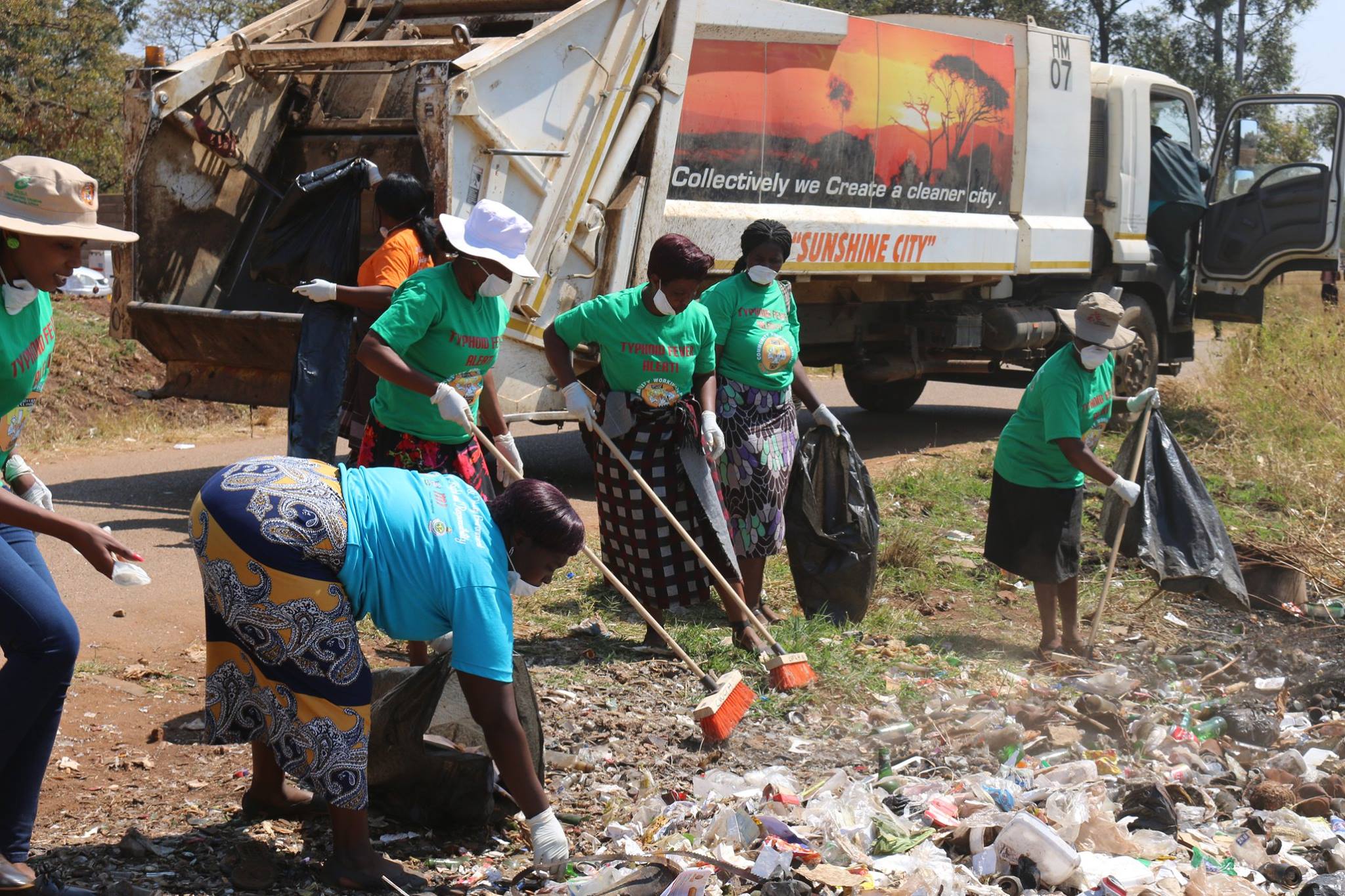By Patricia Mashiri
The Community working group on health (CWGH) has embarked on typhoid awareness clean-up campaigns following the massive outbreak of typhoid in Hatcliffe.
The clean-up was held under the theme “a clean and health environment is your right and responsibility”.
In his opening remarks during the clean-up campaign on Friday 25 July 2017, Ngoni Chingwana, the CWGH Executive said that his organisation is a network of national, civil society and community based organisations that aim to collectively enhance community participation in health in Zimbabwe. The CWGH network works to improve access to health services as well as quality health service delivery and progressive realisation of health rights in Zimbabwe.
Chingwana expressed concern over the continued outbreak of ancient water borne diseases such as typhoid, which resulted in many deaths of Zimbabweans. He condemned the commercialisation of water and urged the government to stand guided by the Constitution, which states that access to portable water is a fundamental human right.
“It is against this background that CWGH has engaged and partnered with the City Health Department, Harare water and the Ministry of Health and Child Care with support of BMZ-Medico to instil in-line chlorinators to 13 boreholes in Hatcliffe and facilitate today’s clean-up campaign,” said Chingwana.
One of the female members of the Health Centre Committee thanked CWGH and urged people to avoid littering
“The CWGH on its own cannot do everything hence they need our support as a community though we face some challenges of ignorant people,” she said.
Naboth Manyengera, the Hatcliffe Councillor appreciated the CWGH initiative in Hatcliffe and encouraged the organisation to replicate the work in other areas so as to help in preventing typhoid outbreaks.
“We thank you for the new system of the in-line chlorinators which you have installed at our boreholes. We are now assured that no one in Hatcliffe will be at risk of typhoid. The chlorine tablets you gave us the last time are now used for washing by people instead of treating the water to drink,” said Manyengera.
The CWGH members split themselves into groups and spent hours sweeping the roads, filling up potholes and transporting garbage to legal dumpsites.
